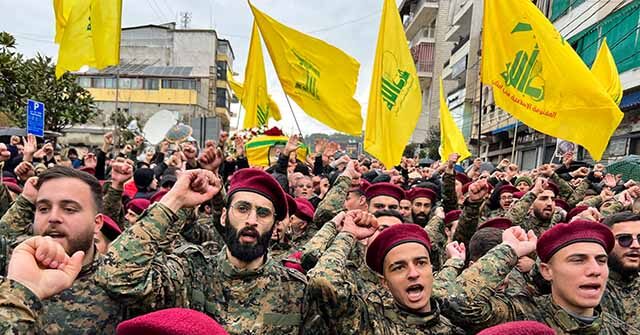The Israel Defense Forces (IDF) announced on Tuesday a significant airstrike in Damascus that resulted in the elimination of Salman Nemer Jamaa, Hezbollah’s senior envoy to Bashar Assad’s regime in Syria. This strike comes at a pivotal moment in the Syrian conflict, which has seen escalating tensions following a recent assault by the al-Qaeda affiliated militia Hayat Tahrir al-Sham (HTS), which captured Aleppo, Syria’s second-largest city. The Assad regime’s response, supported by Russian forces, included extensive airstrikes targeting jihadist sites across the region. The conflict dynamics have also shifted with growing confrontations between the Syrian Kurdish People’s Protection Units (YPG/YPJ) and the Turkish-backed Syrian National Army (SNA), indicating a broadening of hostilities amid the ongoing civil war.
Jamaa’s removal from the battlefield is framed within the broader contest between Israel and Hezbollah, heightened dramatically after the Hamas-led attack on Israel on October 7, 2023, that resulted in significant casualties and abductions. Despite a tentative ceasefire established between Israel and Hezbollah in Lebanon, tensions remain; Hezbollah’s recent rocket attacks on Israel underscore the volatility of the situation. The IDF characterized the airstrike as an intelligence-led action that not only targeted a critical Hezbollah figure but also aimed to weaken the group’s operational capability in Syria, particularly in relation to weapon smuggling and military coordination with the Assad regime.
The IDF released statements emphasizing Jamaa’s role in facilitating arms transfers from Syria to Hezbollah, linking him to operations during the conflict referred to as the “Swords of Iron” war. His elimination is perceived as a strategic blow to Hezbollah, a Shiite militant organization that relies heavily on Iranian funding and support. The IDF’s continuous actions in Syria and Lebanon against Hezbollah leadership, including previous strikes against other high-ranking officials, indicate a concerted Israeli effort to disrupt the operational capabilities of this Iran-backed group.
Israel’s airstrike in Damascus adds to a series of military actions that have escalated tensions in the region, echoing a significant airstrike earlier in the year that killed Mohammad Reza Zahedi, a senior commander of the Islamic Revolutionary Guard Corps (IRGC), prompting an unprecedented Iranian counterattack involving missiles and drones aimed at Israel. This incident signals the deep interconnections between various militant factions and state actors in the region, as Israel views these operations as part of its broader security strategy to counter Iranian influence and thwart the establishment of a permanent foothold for its adversaries in Syria.
Responding to Israel’s actions, Iranian officials have vehemently condemned the airstrikes, accusing Israel and the United States of inciting instability in Syria. Their claims link the violence by HTS and other jihadist groups to a broader conspiracy orchestrated by Israel and its allies. Iranian foreign ministry spokespeople and military figures have labeled the insurgents as mercenaries of Western powers, reinforcing an anti-Zionist narrative that seeks to consolidate regional Muslim sentiments against perceived common threats.
The geopolitical landscape in the Middle East continues to evolve as factions navigate the complexities of alliances and enmities. With Iran supporting not just Hezbollah, but also the Assad regime, Houthi militants in Yemen, and a range of factions across Iraq and Palestine, developments in Syria remain intricately tied to the aspirations of both regional and global powers. The ongoing conflict remains a microcosm of wider geopolitical tensions, with local actors often caught in the crossfire of competing national and sectarian interests, highlighting the fragility of peace and security in the region.

